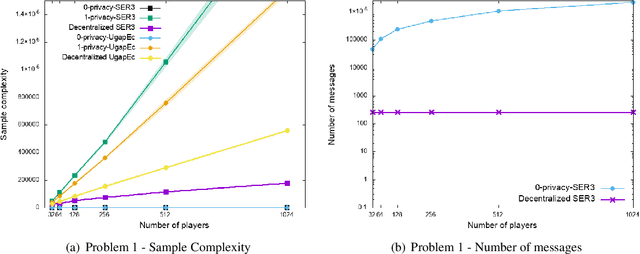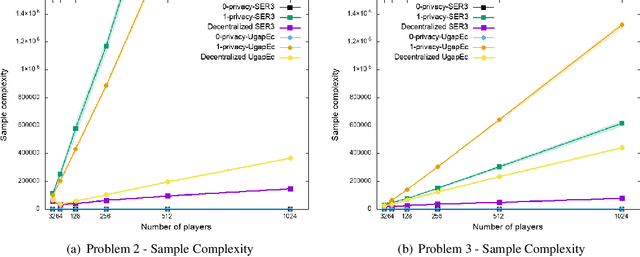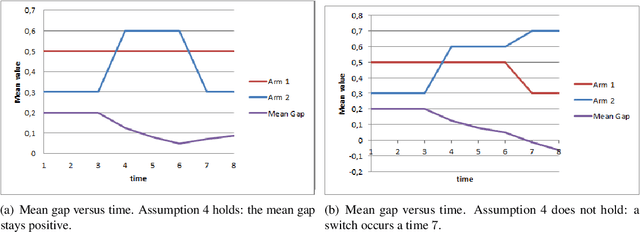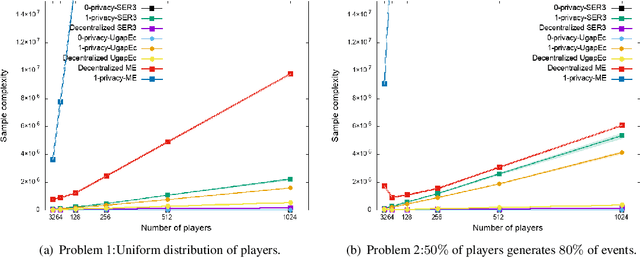Réda Alami
Decentralized Exploration in Multi-Armed Bandits
Dec 10, 2018



Abstract:We consider the \textit {decentralized exploration problem}: a set of players collaborate to identify the best arm by asynchronously interacting with the same stochastic environment. The objective is to insure privacy in the best arm identification problem between asynchronous, collaborative, and thrifty players. In the context of a digital service, we advocate that this decentralized approach allows a good balance between the interests of users and those of service providers: the providers optimize their services, while protecting the privacy of the users and saving resources. We define the privacy level as the amount of information an adversary could infer by intercepting the messages concerning a single user. We provide a generic algorithm {\sc Decentralized Elimination}, which uses any best arm identification algorithm as a subroutine. We prove that this algorithm insures privacy, with a low communication cost, and that in comparison to the lower bound of the best arm identification problem, its sample complexity suffers from a penalty depending on the inverse of the probability of the most frequent players. Then, thanks to the genericity of the approach, we extend the proposed algorithm to the non-stationary bandits. Finally, experiments illustrate and complete the analysis.
 Add to Chrome
Add to Chrome Add to Firefox
Add to Firefox Add to Edge
Add to Edge